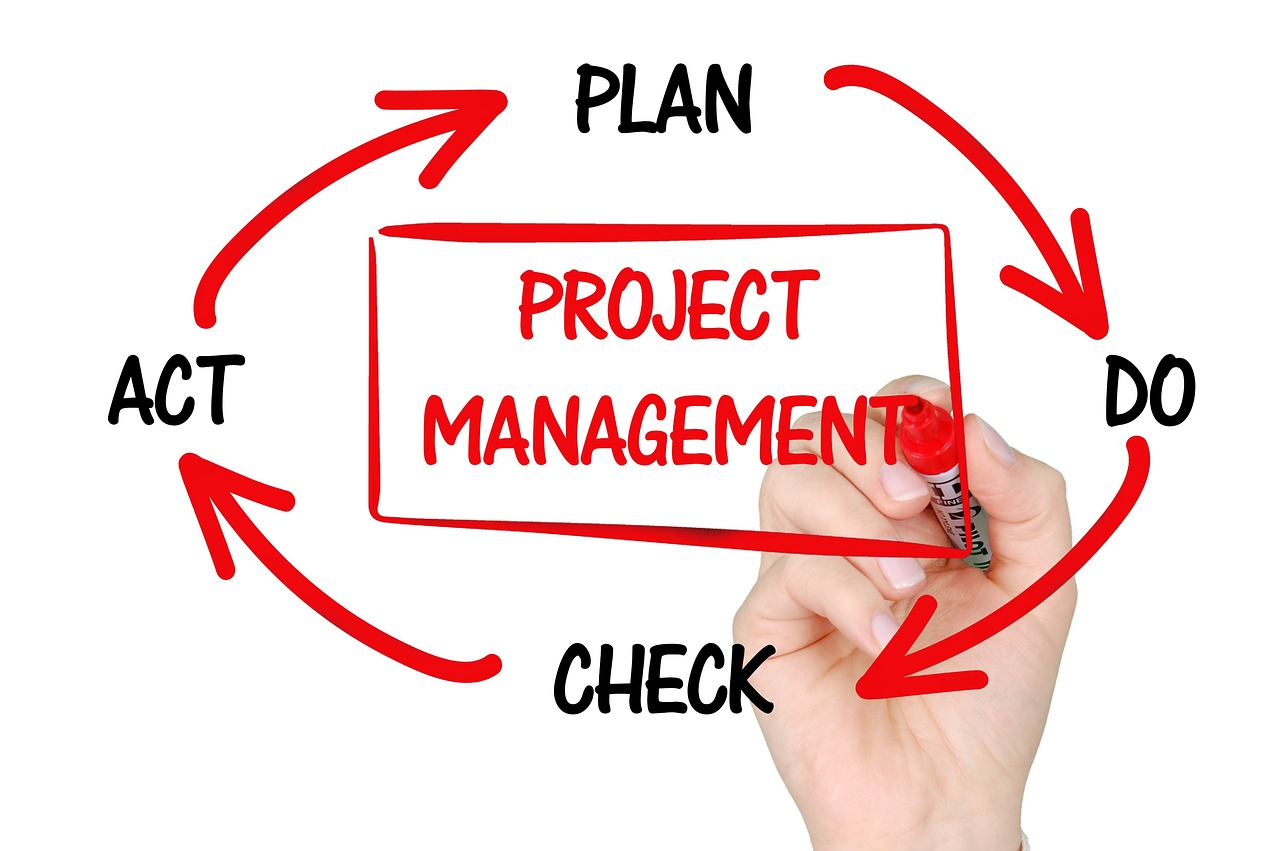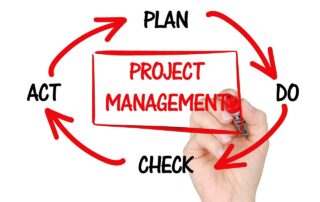Are you tired of the constant challenges and potential chaos that come with managing projects in the fast-paced world of advertising agencies? Look no further! This article explores the benefits and features of advertising agency project management software, which is designed to streamline your workflows, enhance collaboration, and ensure the successful execution of your projects. From keeping track of multiple campaigns to managing client approvals and deadlines, this software is your ultimate companion for efficient project management in the dynamic realm of advertising. So, say goodbye to the headache of disorganized spreadsheets and hello to a more organized and productive workflow with advertising agency project management software.
This image is property of pixabay.com.
BONUS HELP: Use This Software to Take Great Screen Shots
Overview
Definition of advertising agency project management software
Advertising agency project management software refers to the tools and applications specifically designed to help advertising agencies efficiently manage and organize their projects from start to finish. This software provides a centralized platform that allows teams to collaborate, track tasks, allocate resources, monitor budgets, and streamline communication. By utilizing project management software, advertising agencies can improve their operational efficiency and overall project success.
Importance of project management in advertising agencies
Project management plays a crucial role in the success of advertising agencies. In a fast-paced and ever-changing industry like advertising, projects often involve multiple stakeholders, tight deadlines, and complex workflows. Without proper project management, agencies risk facing project delays, miscommunication, budget overruns, and reduced client satisfaction. With the use of project management software, advertising agencies can effectively plan, execute, and monitor their projects, ensuring that they are delivered on time, within budget, and meet client expectations.
Key Features
Task Management
Project management software for advertising agencies offers robust task management capabilities. It allows users to create, assign, and track tasks throughout the project lifecycle. With features like task dependencies, task prioritization, and progress tracking, teams can ensure that all project activities are properly managed and completed on schedule.
Resource Allocation
Efficient resource allocation is critical in advertising agencies where teams often work on multiple projects simultaneously. Project management software enables agencies to allocate resources effectively by providing a clear overview of resource availability, workload distribution, and skill sets. This feature helps prevent resource bottlenecks, maximizes productivity, and ensures that projects are staffed appropriately.
Time Tracking
Accurate time tracking is essential in advertising agencies to measure project progress, track billable hours, and optimize resource utilization. Project management software offers integrated time tracking features that allow team members to log their time spent on specific tasks. This enables agencies to analyze resource allocation, identify areas for improvement, and accurately bill clients for their services.
Collaboration Tools
Collaboration is a cornerstone of effective project management in advertising agencies. Project management software facilitates collaboration by providing communication tools such as chat, file sharing, and commenting features. These tools enable team members to share ideas, provide feedback, and work together seamlessly, regardless of their location or time zone.
Budget Management
Managing project budgets is a crucial aspect of advertising agency project management. Project management software allows agencies to set and monitor project budgets, track expenses, and generate financial reports. By having real-time visibility into budget status, agencies can make informed decisions, control costs, and ensure profitability.
This image is property of pixabay.com.
BONUS HELP: Use This Software to Take Great Screen Shots
Benefits of Using Project Management Software
Improved Efficiency
Using project management software in advertising agencies results in improved efficiency across the project lifecycle. By centralizing project information, automating repetitive tasks, and providing real-time updates, teams can streamline workflows and reduce time wasted on administrative activities. This allows agencies to focus more on creative work and deliver projects on time.
Enhanced Collaboration
Project management software fosters collaboration by providing a centralized platform for team communication and document sharing. It eliminates the need for excessive emails, lengthy meetings, and scattered project information. With shared workspaces, real-time collaboration, and version control, team members can work together seamlessly, resulting in improved productivity and better project outcomes.
Streamlined Communication
Effective communication is the backbone of successful advertising agency projects. Project management software ensures that all communication relevant to a project is streamlined and easily accessible. By providing a centralized hub for discussions, updates, and notifications, teams can avoid miscommunication, stay informed, and make timely decisions.
Better Resource Management
Proper resource management is essential to avoid overworking team members, underutilizing resources, and missing project deadlines. Project management software helps agencies optimize resource allocation by providing clear visibility into resource availability, workload distribution, and skill sets. By ensuring that resources are allocated efficiently, agencies can maximize productivity, reduce burnout, and deliver projects on time.
Factors to Consider when Choosing Project Management Software
Agency Size
The size of the advertising agency is an important factor to consider when selecting project management software. Smaller agencies may require a simpler, more cost-effective solution with basic features, while larger agencies might need a more robust and scalable solution that can handle complex project requirements.
Client Needs
Different advertising agencies serve different types of clients, each with unique needs and expectations. It is crucial to choose project management software that aligns with the specific requirements of the agency’s clients. For example, if the agency frequently works with international clients, software with multilingual capabilities and timezone management features may be essential.
Ease of Use
User-friendly project management software is essential to ensure seamless adoption and minimal training time for agency staff. Look for software that offers an intuitive interface, customizable workflows, and comprehensive user documentation. It is also beneficial to try out a demo or trial version of the software to assess its usability and suitability for the agency’s team.
Customization Options
Every advertising agency has its own unique project management processes and workflows. The ability to customize the software to match these specific requirements is crucial. Look for software that offers customizable project templates, task workflows, and reporting options to ensure that the software can adapt to the agency’s existing practices.
Integration with Other Tools
Advertising agencies often rely on various other tools and software for different aspects of their work, such as design tools, customer relationship management systems, or accounting software. It is important to choose project management software that integrates seamlessly with these tools to avoid redundant data entry, improve productivity, and ensure data consistency across platforms.
This image is property of pixabay.com.
Top Project Management Software for Advertising Agencies
Tool A: Features and Benefits
Tool A is a comprehensive project management software that caters specifically to advertising agencies’ needs. It offers robust task management features, including task dependencies, milestones, and progress tracking. The software also provides resource allocation capabilities, allowing agencies to efficiently manage their teams’ workload. With integrated time tracking, collaboration tools, and budget management features, Tool A ensures that agencies can streamline their project processes from start to finish.
Tool B: Features and Benefits
Tool B is a highly customizable project management software that offers a tailored solution for advertising agencies. With its user-friendly interface and customizable workflows, agencies can easily adapt the software to their existing processes. Tool B also integrates seamlessly with popular design tools, such as Adobe Creative Cloud, allowing creative teams to work efficiently. Additionally, the software provides advanced reporting and analytics capabilities, helping agencies gain valuable insights into their project performance and resource utilization.
Tool C: Features and Benefits
Tool C is a cloud-based project management software that is ideal for advertising agencies of all sizes. Its intuitive interface and easy-to-use features make it suitable for both seasoned project managers and those new to project management. Tool C offers comprehensive time tracking, budget management, and resource allocation features, enabling agencies to streamline their project workflows and improve their overall productivity. The software also provides real-time collaboration tools, allowing teams to collaborate seamlessly, regardless of their location.
Case Studies
Agency X: How they Integrated Project Management Software
Agency X, a medium-sized advertising agency, faced challenges in managing their numerous projects simultaneously. They decided to integrate project management software into their workflow to streamline their processes. By implementing the software, they were able to centralize project information, allocate resources more efficiently, and improve team coordination. The software’s budget management features also helped them control their project costs effectively. Agency X experienced increased project success rates, improved client satisfaction, and a more productive team.
Agency Y: Success Stories with Project Management Software
Agency Y, a large advertising agency, struggled with communication and collaboration across their distributed teams. They implemented project management software that offered real-time communication tools, shared workspaces, and document collaboration features. This enabled their teams to collaborate seamlessly, share ideas, and provide feedback regardless of their physical location. As a result, Agency Y saw a significant improvement in communication efficiency, reduced miscommunication, and enhanced productivity.
Implementation Process
Identifying Needs and Goals
Before implementing project management software, advertising agencies should identify their specific needs and goals. This involves evaluating their current project management processes, identifying pain points, and determining the required features and functionalities in the software.
Researching and Evaluating Software
Once needs and goals are identified, agencies should conduct thorough research to identify suitable project management software options. They should consider factors such as features, pricing, user reviews, and customer support. It is advisable to shortlist a few options and evaluate them through demos, trials, or consultations to ensure a good fit.
Implementing the Chosen Tool
After selecting the appropriate project management software, agencies should develop an implementation plan. This includes setting up the software, configuring workflows and project templates, and migrating existing project data if necessary. It is essential to involve key stakeholders and ensure proper training and onboarding to maximize user adoption.
Training and Onboarding
To ensure successful adoption of the project management software, agencies should provide comprehensive training and onboarding to their teams. This includes familiarizing users with the software’s features, demonstrating best practices, and providing ongoing support. Clear communication about the benefits of the software can help alleviate any resistance to change.
Monitoring and Continuous Improvement
After the software is implemented and teams are onboarded, agencies should continuously monitor and evaluate its effectiveness. Regularly review project metrics, collect feedback from users, and identify areas for improvement. This iterative process allows agencies to optimize their project management practices and adapt to changing needs over time.
Best Practices for Agency Project Management
Define Clear Objectives and Milestones
At the beginning of each project, clearly define project objectives and milestones. This ensures that everyone on the team understands what needs to be achieved and the key deliverables. Breaking down projects into smaller milestones helps track progress and maintain momentum.
Establish Effective Communication Channels
Effective communication is vital for successful project management in advertising agencies. Establish clear communication channels and protocols, ensuring that team members can easily reach out to one another. Encourage regular updates, feedback sessions, and collaboration to foster a culture of open communication.
Utilize Project Management Methodologies
Leverage established project management methodologies, such as Agile or Waterfall, to structure and guide projects effectively. These methodologies provide frameworks, processes, and best practices that can help ensure project success and optimize resource utilization.
Regularly Evaluate and Adjust Processes
Regularly evaluate project management processes and workflows to identify areas for improvement. Seek feedback from the team, analyze project metrics, and look for opportunities to streamline processes. Be open to making adjustments and implementing changes that enhance efficiency and project outcomes.
Encourage Team Collaboration and Accountability
Promote a collaborative and accountable work environment to maximize project success. Encourage team members to actively participate, contribute ideas, and take ownership of their tasks. Foster a culture of collaboration, where team members support and help each other to achieve project goals.
Challenges and Limitations
Resistance to Change
Implementing project management software may face resistance from staff members accustomed to traditional project management methods. It is important to address concerns, provide proper training and support, and communicate the benefits of the software to overcome this resistance.
Integration Issues
Integrating project management software with existing tools and systems can be challenging. Ensure that the chosen software has proper integration capabilities or consider using APIs or third-party integration tools to connect different platforms and ensure smooth data flow.
Complexity and Learning Curve
Project management software often comes with a learning curve, especially for staff members who are new to project management concepts or technology. Provide comprehensive training and support throughout the implementation process to help users adapt and make the most of the software.
Data Security and Privacy Concerns
With project management software storing sensitive project and client data, data security and privacy are significant concerns. Choose software that offers robust security features, such as data encryption, user access controls, and regular backups. It is also important to comply with relevant data protection regulations to ensure the safety of confidential information.
Future Trends
Artificial Intelligence and Automation
Artificial intelligence (AI) and automation are poised to revolutionize project management in advertising agencies. AI-powered software can help automate repetitive tasks, provide valuable insights from project data, and optimize resource allocation. As AI technology advances, advertising agencies can expect increased efficiency, enhanced decision-making, and improved project outcomes.
Remote Collaboration Tools
With the rise of remote work, advertising agencies need project management software that facilitates seamless collaboration among distributed teams. Future project management software will likely incorporate more advanced remote collaboration features such as virtual project rooms, video conferencing, and real-time document editing to enhance teamwork regardless of physical distance.
Real-time Data Analytics
Real-time data analytics will play a significant role in the future of project management software for advertising agencies. Leveraging big data and machine learning algorithms, project management software will provide agencies with real-time insights on project performance, resource utilization, and overall business metrics. This will empower agencies to make data-driven decisions, proactively identify risks, and optimize project outcomes.
In conclusion, advertising agency project management software is an essential tool for modern agencies to streamline their project processes, enhance collaboration, and improve overall efficiency. By considering factors such as agency size, client needs, ease of use, customization options, and integration capabilities, agencies can select the most suitable software for their specific requirements. Implementing the chosen software involves identifying needs and goals, researching options, configuring workflows, training teams, and continuously monitoring and improving processes. By following best practices, addressing challenges, and staying ahead of future trends, advertising agencies can leverage project management software to achieve better project outcomes and deliver exceptional results for their clients.
you might also like
Radio Advertising: Still Relevant in the Digital Age
Are you looking for a way to reach your target audience and increase brand awareness? Radio advertising might be the answer. In this blog post, we'll explore why radio advertising is still [...]
Testimonial Advertising: The Power of Social Proof in Marketing
Introduction to Testimonial AdvertisingTestimonial advertising is a powerful marketing tool that uses social proof to influence potential customers. Social proof refers to the tendency of people to rely on the actions and [...]
Advertising Agency Project Management Software
Looking for advertising agency project management software? Streamline workflows, enhance collaboration, and ensure successful project execution with this software. Say goodbye to disorganized spreadsheets and hello to a more organized and productive workflow.






